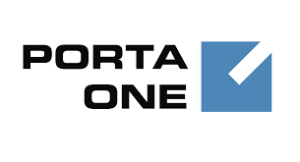
Worldwide, remote work is becoming integral to many businesses. While working from home or at a coffee shop sounds appealing to many people, there are advantages and disadvantages for the employee and for the company that employs them.
At Premitel, we define remote working as any employee working outside of a traditional office space. They could be working from a client’s office, a coffee shop, a hotel or their home. They could also be permanently based in another city or country, this is also considered remote working (or telecommuting).
Remote work is no longer seen as a privilege for those in senior positions. According to Forbes, “It’s become the standard operating mode for at least 50% of the U.S. population.” Flexible work arrangements have become a standard part of traditional employee contracts. And with good reason, because remote working, when done right, can have many benefits for both individuals and their employers.
In the following article, we take a look at how remote employees may benefit or be a risk to the bottom line of a company. We also share some insider tips to help you implement an effective remote working policy in your business - leveraging the benefits and reducing the risks to your bottom line.
The benefits of remote working for any business
The most well-known benefit of remote working for businesses is how cost-efficient it is. If you employ staff who work remotely on a full-time basis or part-time basis, you reduce costs such as:
- Office space (you can afford to rent or buy a much smaller office space)
- Office furniture (with part-time remote workers you could try hot desking rather than each staff member having a permanent desk)
- Hardware such as computers, monitors, and so on
- Electricity and other consumable resources
- Travel expenses (remote workers do not have to travel to and from work every day - which means they are more negotiable when it comes to salary expectations)
The increased productivity of your employees due to remote working will be beneficial to the bottom line of your business. A study done by Stanford University found that the remote workers’ average increase in productivity was equal to a full day’s work each week. There’s also a significant decrease in the number of sick days taken by employees.
The diversity of your company increases significantly when you enforce remote working. With remote work, you’ll be able to offer positions to qualified workers from around the country and the world. Fundera says, “68% of millennial job seekers said a work from home option would greatly influence their interest in working for a company.” Not only will you have a bigger pool of talented employees, but remote work can help you retain them.” The same Stanford University research concluded that people who worked remotely were less likely to leave the company for other employment. The study found there was an overall 50% decrease in attrition among home-based workers,” says remote.co.
The risks involved in remote working for any business
The inability to enforce security is a major risk for all businesses, not just those in the telecommunications industry. A study done in the UK in 2018 found that 95% of businesses were still struggling with remote working and enforcing security with, “A third of organizations claim to have experienced a data loss or breach as a direct result of mobile working and only around half of the employers enforce data encryption on remote workers’ devices.”
Unfortunately, this same survey found that many remote workers in the UK and in other European countries have lost company devices in a public place, broken company security policies when working remotely, and left the company premises with unencrypted data. A US-based market research firm, InsightExpress, conducted a survey in Asia where they found that remote working employees would work on files with personal, non-IT-protected devices. “76 percent of remote workers in China confessed they had done this. 12 percent of remote workers admitted to hijacking wireless internet connections from neighbors,” says InsightExpress in their CISCO survey. It can be difficult to control how your employees use the technology given to them to do remote work while keeping in mind the security policies of your company.
Although employees are encouraged to communicate with their team members via Whatsapp, email, and other instant messaging platforms when working remotely, a lack of communication still occurs. Working remotely can make employees feel isolated despite having various ways to interact and communicate with their co-workers. This could negatively affect the morale in a company, leading to unnecessary disagreements between co-workers because there is a disconnect.
With this in mind, one of the biggest risks to successful remote working is poor connectivity. This creates a barrier to communication and prevents staff from being able to perform their duties effectively.
The growth and future of remote work
Remote working is possible for connectivity specialists like ourselves. A survey by FlexJobs and Global Workplace Analytics found that, “The number of telecommuting workers had increased 115 percent since 2005 to 3.9 million US employees who work from home at least half the time. This is nearly three percent of the total US workforce.” 5G networks will be implemented in the near future and will impact how companies enforce remote working. 5G is the next generation of cellular technology, and it hopes to greatly enhance the speed, coverage and responsiveness of wireless networks.
The speed isn’t the only benefit but the low latency. Cnet defines latency as, “The response time between when you click on a link or start streaming a video on your phone, which sends the request up to the network, and when the network responds, delivering you the website or playing your video.” When you have the ability to communicate over your company's network in near real-time, proximity won’t matter anymore, pushing the remote work agenda. “The 5G network will become the differentiator that will foster new innovations with its ability to deliver unprecedented productivity gains, while pioneering new distribution and consumption models,” says the World Economic Forum.
How does Premitel support remote working in South Africa?
With Premitel’s information systems and platforms being mainly cloud-based, all that a staff member would require to access these systems is a stable Internet connection. With the wide deployment of the current 4G/LTE networks and further deployment of 5G networks, connectivity is becoming simplified, and more and more effective.
Due to Premitel's extensive partnership with various network vendors, we recommend that any situation be handled on a case-by-case basis in order for us to recommend the best possible network solution at any particular address, since the different network vendors tend to focus in different areas.
Fibre to the Home(FTTH) footprints are also expanding rapidly. You can now find very competitive price plans due to a massive drive by fibre vendors and ISP's to try and gain the biggest possible market share.
What will further enhance the ability for your remote staff to work effectively is our cloud telephony solution that enables a staff member to communicate with colleagues, clients, and suppliers seamlessly from wherever he needs to set up an office.
Premitel's Cloud Call Center(CCC) product offers a decentralised solution that has all the functionality and features of a fully equipped call center - but with the added advantage that various staff members would be able to fulfill the same function working from home as if they were when doing it from office premises.
Although you may not traditionally think of call centre agents as a remote-friendly role, technology has made it possible to mitigate the risk for companies. With the built-in reporting functionality and call recording that the CCC offers, that can be accessed from anywhere on-line, a manager would easily be able to track the productivity and effectiveness of any agent. Management would have a full view of metrics such as the percentage of calls taken and not taken. To this end, Premitel’s own support staff are already doing after-hour support to clients from home, using this system.
Our latest telephony product addition, the Mobile Extension Application for Android phones, Microsoft platforms and Web browser applications (soon to be available for Apple users as well) will further enable staff to make, receive and transfer calls from their mobile phones or web platforms. This service includes extension dialing, IVR’s, hunt group functionality and almost any feature available on an IP telephone. You can use this as your office extension on Wifi and/or LTE data connections on your existing mobile phone while working remotely.
How do you overcome the challenges of remote working?
You need to ensure that your staff have not only the right technology but the right knowledge about your company’s aims, values and mission. Hubstaff suggests you,“Make sure everyone is familiar with the company values enough so that if they need to make an urgent, educated guess, they’re likely to make the right one for the business.”
Businesses need to learn to invest in remote working not just by providing the right equipment for the job to get done outside the office but also through in-depth policies all employees are aware of and practice.
The Ultimate Guide to Remote Work by Zapier says the success to great remote work is teams, tools, and process. When it comes to teams, the guide suggests hiring “doers” who are people you can trust, those willing to be in a social workplace and also those who can write. Writing is essential because almost all forms of communication are written, so ensure you have people who can easily explain a project, what they need to do, and what they need others to do to get the job done.
Processes include having one-on-one sessions with managers or team leaders so no employee becomes invisible. Having a good culture of accountability means having everyone updating the team on what they're focusing on for the day and if they are going to be offline for any reason during certain times of the day.
Here is a list of tools - some from the guide and others we think are a good way to help teams work better when some members are working remotely:
- Asana
- Google Drive
- HelloSign
- LastPass
- PukkaTeam
- Skitch by Evernote
- Slack
- Trello
- Zoom
How can your business ensure that employees working remotely show greater diligence towards security? A website providing information, tools, and comparisons, Comparitech, suggest doing the following:
- Never trust unsecured WiFi or Bluetooth, and switch them off when not in use.
- Before using a public WiFi, connect to a Virtual Private Network (VPN) so that internet traffic is encrypted.
- Only use external devices to store sensitive data when it is encrypted.
- Use cloud-based services.
- Enforce remote working policies and procedures including data encryption on all devices and allowing only approved devices access to company networks.
For more tips to secure your home network, read our article, Is my home WiFi network safe?
We have developed cloud service and call centre solutions that integrate with our Cloud PBX system to enable mobile workers and offers incredible control-, performance- and KPI management capabilities to the business. Remote working is certainly viable and on the increase in South Africa. Due to Premitel's extensive partnership with various network vendors, we recommend that any situation be handled on a case-by-case basis for us to recommend the best possible network solution at any particular address since the different network vendors tend to focus in different areas.
As Forbes says, “All signs indicate that we are nowhere close to hitting the plateau. Businesses across public and private sectors increasingly recognize the benefits of hiring and retaining remote workers.” The trend of remote work is further fueled by the newcomers in the workforce - Gen Zs who want businesses to acknowledge the importance of a good work/life balance.
Looking for forward-thinking communication and internet solutions? Simply click the button below to contact Premitel for a quote.







